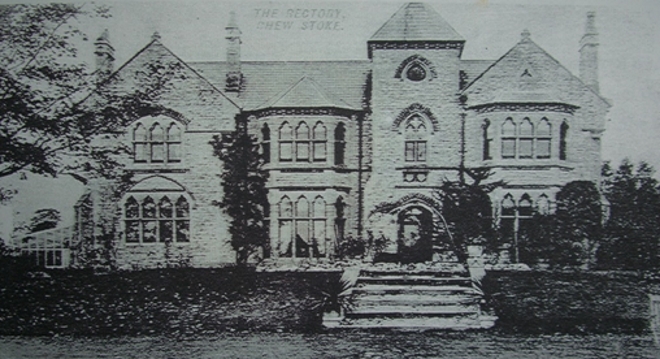T: 01822 851370 E: [email protected]
Visit RSN Survey about life in rural England to find out more.
Spotlight on the RSP - July 19 Edition
Welcome to July’s Rural Services Partnership Spotlight.
Since a number of RSP members were given the opportunity to join both the RSP and the Rural Health & Care Alliance, RSP has increased its membership to 179 organisations. To find out more about these and existing members of the RSP click here
Within the past three months the following organisations have joined the RSP: Lantra, Rural Media, Wessex Water, Salisbury NHS Foundation Trust, Together Lancashire and Cornwall Partnership NHS Foundation Trust.
The RSP features this month demonstrate the diverse work that is being undertaken by RSP members to improve rural services and address vulnerability challenges in rural England.
Living Memories
 The RSP has been working with Living Memories for over a year now and is keen to promote their work which address rural loneliness and social isolation. Take a look at their innovative project ‘How To Stay Young’.
The RSP has been working with Living Memories for over a year now and is keen to promote their work which address rural loneliness and social isolation. Take a look at their innovative project ‘How To Stay Young’.
HOW TO STAY YOUNG. WATCH ARCHIVE FILMS!
In January 2019, Living Memories set up the monthly Tea & Memories Group in Colyton, East Devon. Our aim was to run it as a pilot project to bring older people together to watch several archive films from the 1940s-70s from our large collection and then reminisce about life before, during and after WW2.
The meetings have proved to be a great success, with many biscuits being nibbled while listening to the 20+ members share their happy and sad memories of being an evacuee or experiences while working in the fashion, farming and fishing industries and many other fascinating stories. In June we watched films of Royal visits to the Middle East in the 1970s, which proved to be very popular and produced a lot of sympathy for the number of hands the Queen has had to shake during her reign!
 The members of the Group are already asking if we can meet more often to watch films and they are learning more about the earlier lives of neighbours and other locals than they knew before. Their health and wellbeing are certainly benefiting and new friendships are being formed.
The members of the Group are already asking if we can meet more often to watch films and they are learning more about the earlier lives of neighbours and other locals than they knew before. Their health and wellbeing are certainly benefiting and new friendships are being formed.
In the Winter we plan to start inviting children from local schools to occasionally join the Colyton Group to watch a film and chat about how different life was in the mid-20th century.
The popularity of our Colyton Tea & Memories Group is now being spread by our recent Transform Ageing Aspire Award and by word of mouth, particularly by WI members, one of whom said that watching the archive films makes her feel young again!
We are now getting requests to run Pop-Up Tea & Memories groups in other communities in East Devon. Today I ran a Pop-Up session in Chard, Somerset which proved very popular and I am pleased to say that a permanent Tea & Memories Group will be set up in Chard later in 2019.
In view of this growing demand Living Memories is now developing a social franchise that will enable any organisation or community group to subscribe online to our collection of archive films and reminiscence resources for delivery via TV, iPads and tablets. We shall also provide guidelines on how to set up and run a Tea & Memories Group like the one we have in Colyton.
If you are interested in running your own Tea & Memories group using our Living Memories archive films or if you represent a local authority wanting to support such groups please contact me by email at [email protected].
Brian Norris, Director, Living Memories C.I.C.
- Website: www.living-memories.net
- Twitter:@memorytriggers
Rural Media
 As a new member we are keen to promote the work of Rural Media. In the wake of recent news stories pertaining to domestic abuse in rural areas, ( for details please refer to last week’s Rural Bulletin https://rsnonline.org.uk/domestic-abuse-in-rural-areas) Rural Media is keen to reach out and highlight some of their projects that are still, sadly, very relevant. Take a look at the following:
As a new member we are keen to promote the work of Rural Media. In the wake of recent news stories pertaining to domestic abuse in rural areas, ( for details please refer to last week’s Rural Bulletin https://rsnonline.org.uk/domestic-abuse-in-rural-areas) Rural Media is keen to reach out and highlight some of their projects that are still, sadly, very relevant. Take a look at the following:
ReFocus: https://www.ruralmedia.co.uk/charity/projects/refocus
- Our ReFocus films were produced in 2011/12 with young people, all with experience of growing up in violent households (most of them rural) and some participants were living in refuges during their time on the project.
- ReFocus was funded by Comic Relief and we partnered with West Mercia Women’s Aid to develop the project. The films received wide attention and distribution at the time – they are a great resource and sadly are as relevant today as they were 6 or 7 years ago.
- Download film here: https://vimeo.com/36685901
Can You See Me?: https://www.ruralmedia.co.uk/charity/projects/can-you-see-me
- Developed in partnership with Women’s Aid, The Midcounties Co-Operative and West Mercia’s Women’s Aid, Can You See Me? Produced an easy-to-use resource aimed at a younger audience (15-16) to be utilized in schools/education to explore, uncover and broach the issue of teenage relationship abuse.
- Booklet resource here:
https://www.ruralmedia.co.uk/sites/default/files/uploads/cysm%20booklet_download.pdf
- Download film here: https://vimeo.com/140083836
Dispensing Doctors’ Association
 The RSP continues to recognise the exceptional work of its members, in particular that of The Dispensing Doctors’ Association, who are also an active member of the Rural Health and Care Alliance.
The RSP continues to recognise the exceptional work of its members, in particular that of The Dispensing Doctors’ Association, who are also an active member of the Rural Health and Care Alliance.
The following editorial highlights some worrying trends for rural GP surgeries in hundreds of English villages.
In June 2019 the Daily Telegraph ran a front-page story[1] highlighting the loss of the local GP surgery in hundreds of English villages.
It said that the impact of NHS policy compelling practices to consolidate resources, as well as the problems of recruiting GPs, were forcing small, rural practices to close.
To quantify the problem, the newspaper looked at the number of communities which are more than three miles away from the nearest GP practice. It found that there are almost 2,000 villages, mostly in the Cotswolds and in Lincolnshire, in this position. The number of affected communities has increased by 162 in just two years, bringing the total of affected communities to 1,946, affecting many hundreds of thousands of people. In some parts of the countryside, patients – many of whom are older than the national average – have to travel 14 miles to their nearest surgery.
For over seven years rural GPs have been warning of the dangers facing rural general practice as a result of urban-centric health policy. General practice ‘at-scale’ is fine for urban practices that, at most, are just a few miles apart. But in rural areas, where GPs are usually separated by miles of rural roads, mountains or lakes, and at the mercy of poor IT connectivity, merging or consolidating in line with NHS policy can be a challenge too far. Yet, both prime ministerial wannabe Jeremy Hunt, with three dispensing practices in his constituency, and health and social care secretary Matt Hancock, with 10, have “offered warm words, but have delivered nothing”, says Matthew Isom, who heads the UK’s only association specifically for rural GPs, the Dispensing Doctors’ Association.
Dispensing by GPs is an activity which predates the NHS and the advent of community pharmacies, but which continues today in the country’s remote towns and villages, where a community pharmacy service is unviable due to population sparsity.
But, far from being a last resort for the delivery of NHS pharmacy services, dispensing GPs offer the NHS an integrated, cost-effective solution to the supply of NHS medicines to patients, a very convenient and safe service for patients, as well as a sustainable and highly satisfying career path for local people who work in the practices’ dispensaries.
For those residents who are, or could be affected by the loss of their local village GP, a new research project by the National Centre for Rural Health Care, supported by the DDA, aims to quantify the value of the income derived from GPs’ dispensing activity in supporting and sustaining rural practices. Among the key questions to answered is: How would loss of a practice’s dispensing service affect provision for patients?
Government commitment to support this vital health service lifeline for rural people is, typically, vague. A recent question[2] asked of the minister for health and social care Baroness Blackwood in the Lords failed to elicit a specific commitment to rural general practices over and above what is already in the (naturally, urban-centric) NHS long-term plan.
In response to the question, Baroness Blackwood could only promise: “Digital-first primary care by April 2021 will provide another way for patients in rural areas to access services," she said.
The DDA believes that policy for rural general practice needs to be put to the top of the NHS priority list, before more communities lose vital healthcare services.
DDA chairman and practising rural GP, Dr Richard West said:
“Were it not for dispensing, many more rural/coastal surgeries would have closed.
“Current government policy for general practice is largely urban centric and NHS England’s plans have nothing specific for rural communities. This must change and now is the best time to achieve that.”
The Dispensing Doctors’ Association (DDA) represents over 6,600 doctors currently working in 1,290 dispensing practices across the UK. It is the only organisation that specifically represents the interests of dispensing doctors and their 8.8 million patients.
Read more about the work of the DDA online at www.dispensingdoctor.org
[1] Daily Telegraph news article. Wednesday 26 June. Hundreds of villages lose local GP surgery.
[2] Hansard House of Lords. July 2, 2019. GP Services in Rural Areas [online] at: https://hansard.parliament.uk/lords/2019-07-02/debates/EA881BCF-5AF3-491C-947D-EFD5368D2E6B/GPServicesInRuralAreas
C.Co
 C.Co is an active member of the RSP and has been working with us for over a year to highlight inequalities in rural England and how they work to address these challenges and find solutions. The following article provide an interesting insight about the work that C.Co is currently undertaking for Selby District Council, a member of the Rural Services Network.
C.Co is an active member of the RSP and has been working with us for over a year to highlight inequalities in rural England and how they work to address these challenges and find solutions. The following article provide an interesting insight about the work that C.Co is currently undertaking for Selby District Council, a member of the Rural Services Network.
Rural Economic Development and Planning
Selby District Council is a rural authority that is punching way above its weight with what it is delivering on its Economic Development and Planning objectives. The council staff who work in these parts of the organisation are already high performing, but aspire to be the best. CIPFA C.Co are currently working with their Planning team to help them to achieve this goal.
Selby is right at the heart of Yorkshire, close to the vibrant and growing cities of Leeds and York, and with key national North-South and East-West road and rail links giving the district first class connectivity. It also has a highly skilled population, a great quality of life and existing strengths in sectors with high productivity. By capitalising on these strengths and natural assets, the Council aims to further boost productivity and encourage sustainable economic growth across Selby District. It works closely with developers to bring forward new commercial land. This will not only allow them to attract investment into the District, creating new and higher-value employment opportunities, but also meet the needs of existing businesses seeking to expand and grow. In addition to Selby District being home to a high proportion of large businesses, it also has a rich and diverse base of micro businesses. It has recognised the need to implement specific, targeted responses to support self-employment and SMEs across the District, ensuring that businesses with growth ambitions are supported to flourish.
 |
Dave Caulfield, Director of Economic Regeneration and Place at Selby District Council: ‘Our economic development plans are ambitious, forward thinking and outward looking – we’re proud of that. Our approach to Planning is positive, about place-making not regulation, and supports our wider corporate ambitions. Our work across Planning and Economic Development won us Local Authority of the Year at regional property industry awards – our approach is collaborative, and has been developed with and for our businesses and partners. As a small district with big ambitions, only by working together can we create a thriving and prosperous Selby District’.
In terms of its Planning function, it is a District with picturesque rural landscape, great connectivity and affordable house prices, which means that there is a strong demand for housing in Selby District. It is vital to ensure that the housing market continues to meet the needs, preferences and aspirations of its residents and help to attract new investors and people to the District, whilst retaining existing workers. Revitalising the town-centre offer of its three market towns of Selby, Tadcaster and Sherburn-in-Elmet is integral to achieving those ambitions. Developing their retail, leisure and night-time economy offer and ensuring they are vibrant community and social hubs will help to ensure money is spent in the local area, creating a more sustainable local economy. This means that as a Planning function the Council needs to be truly ‘open for business’ and be seen to positively support development, whilst making sure it does not impact on the unique character of the District. CIPFA C.Co have recently been working with the Council to make sure it goes from strength to strength.
John Knight, C.Co Programme Director ‘It is refreshing to be working with an organisation who are a current success, but recognise the need to look to the long term and make sure that it is not just what they do, but how they do it, that is important. They are developing and strengthening their organisational culture as well as their processes’.
The Council believes the District has a critical role to play in transforming growth across the north of England, and rebalancing the country’s economy. Its aim is to create economic prosperity, and better connect sustainable growth, across Yorkshire and the Humber, and the north as a whole.
English Rural
 The RSP is keen to promote case-studies, the following example provided by English Rural is an exceptional example.
The RSP is keen to promote case-studies, the following example provided by English Rural is an exceptional example.
“Some said we were mad. We said, ‘remember our purpose’.”
These are the words spoken by our Chief Executive, Martin Collett, after English Rural took on a project in the village of Chew Stoke to rescue ‘The Old Rectory’, a Grade-Two listed Victorian house from dire straits back in 2013.
But first, a brief history...
The Old Rectory is located within the village of Chew Stoke, Somerset. Built by the Reverend John Ellershaw in the 1870s, The Reverend Lionel St. Clair Waldy was the last Rector to occupy the building from 1907 to 1945. A change in use of the building came when Mr. Douglas Wills bought the property, including Rectory field, and gifted it to Winford Hospital in the 1950s for their use for a convalescent home for children in memory of his late wife, Pamela. It then became known as the Pamela Wills Convalescent Home and accommodation was provided for 16 children. It was subsequently used as a Nurses Home and eventually the Health Authority sold the house to The Lodge Co-operative Housing Association after it had been empty for some years.
 |
A fall from grace
The house had fallen into disrepair whilst it was left empty. It was then occupied by squatters who formed a housing co-operative in the late 1970’s and started the process of repairing, improving and adapting this old house as a home once more. Previously known as ‘The Pamela Wills Nursing Home’ it was renamed The Old Rectory. The Lodge Co-operative was a ‘permanent tenant-ownership co-operative’, part of a broader co-operative movement that utilised grants available to housing associations to develop homes that could be made available at an affordable rent.
A quote from one of the original squatters:
“I first came to Bristol in the summer of 1974 and my eye was immediately drawn to a shop in a central area, which was the HQ of The Joint Housing Action Group - a loose affiliation of political groups and housing activists. The JHAG acted partly as a pressure group and partly as a squatters' association - it organised protests and demos and helped homeless people move into empty properties. As luck would have it, one of their associates worked for Avon County Council, and every time he came across information regarding a publicly-owned property which had been empty for more than two years, he passed on the details to the JHAG, who would then investigate and if it looked suitable, would help a group of people in need to squat it. One Sunday, a group of people arrived in Chew Stoke armed with cooking facilities - stoves, pots and pans, and let themselves gently into The Pamela Wills Nursing Home. After settling in, one of them contacted the local police who visited, read the electric meter, told them they would have to pay the rates, and left again. This didn't go down very well with the older villagers, however the younger ones thought it was great! For the first year or so, there was a lot of coming and going, but the people who wanted and needed to stay eventually formed themselves into a co-operative housing association, and the rest is history…”
Into the 21st century and the difficulties of running a co-operative gradually became harder and more apparent and the situation at the Old Rectory worsened. Responsibility and workload continued to fall to only a very few members. The co-operative became unable to reach agreement over certain issues, communication between residents started to break down and disputes emerged. The lack of formal written tenancy agreements and agreed policies made resolving disputes difficult. The grade two listed building also needed major repairs to be carried out, which finances did not stretch to. The future looked bleak.
A new lease of life
It was clear that the approach to tenancy and neighbourhood management lacked any formality or agreed process, the result being insufficient control mechanisms to tackle even some basic issues. There was also little focus on corporate issues, such as achieving strategic objectives and financial management and there was no evidence of any risk management activity being undertaken.
English Rural received a unique insight into The Lodge when it was commissioned in 2013 to undertake a peer review which identified several areas of organisational and administrative weaknesses. One of the recommendations of the review was that The Lodge Co-operative Shareholders should review how best to resolve these and continue to meet objectives in the future.
Residents were given three options: a) Continue as they are, b) Continue with external support, c) Join with another organisation able to assist with provision of services, regulatory compliance and ensure financial security. It was clear there would only be one satisfactory outcome. It then took two years for this decision to be accepted by all the members, some of whom initially opposed the transfer proposal of The Lodge Co-operative to English Rural, seeing it as a loss of independence.
English Rural already had eight units in Chew Stoke as well as 18 in the neighbouring village of Winford. It also held the necessary skills and other resources to take on such a complex project.
The transfer would establish a secure long-term future for residents and unlock substantial investment available from Homes England and Bath and North East Somerset Council to upgrade and improve the existing homes. Following a thorough due-diligence process, English Rural’s Board were asked to consider the proposal and in March 2017 the Transfer of Engagements (TOE) from The Lodge Co-operative to English Rural was completed.
According to one member of the co-operative, “I’ll always be grateful that English Rural rescued us from such a very difficult situation and that they are helping to transform the Old Rectory into a happy home for us all once more.”
 |
Now and the future
The residents now benefit from improvements to tenancy and neighbourhood management, including formal tenancy agreements and complaints, arrears and anti-social behaviour policies. Crucially, the property also receives much needed care and attention, including full surveys, a planned approach to future maintenance, full compliance with Health and Safety requirements and long-term financial planning.
The local authority, Bath and North East Somerset Council (BANES), were approached for additional funding to assist with catch-up repairs. English Rural were pleased to be able to report that BANES formally approved a grant of £150,000 for this purpose, without this the transfer would have not been considered viable given the level of investment needed in the building.
As part of the support offered here, English Rural received funding from Homes England to upgrade and adapt a ground floor unit to make it suitable for use by a resident with severe mobility issues. In total the funding bid to Homes England was £65,000.
In March 2019, the resident with mobility issues was relocated to a completely refurbished single-level ground-floor flat. Much of the design of the flat has been set around giving the resident improved access and an enhanced living environment that enables her partner to continue working from home and provide consistent support. Two extra bedrooms also helps provide respite care for another family member.
Other flats at The Old Rectory will also be refurbished and in some cases remodelled.
Our purpose
Back in 2013 when our then Operations Director and now Chief Executive, Martin Collett, was inspired to encourage English Rural to take on the project it was met with challenges and objections. Who on Earth would take on such an arduous project? We did. Why? Because at the heart of what English Rural stands for and what underpins what we do is community. Communities need people and people need homes. Giving people a place to call home that is affordable, safe and secure provides the stability they need to prosper in their local community. Social housing is where someone’s story begins, not ends. The story of The Old Rectory is no exception
The RSP Members’ Press Release Board
|
Dates for your diary
As RSP members you have more opportunities than ever to network and learn from best practice, as we continue to provide a diverse and exciting programme of events. These include:
- Tuesday 3rd and Wednesday 4th September The National Rural Conference : * RSP delegates benefit from reduced admission rates
- The regional seminars/networking meetings around the country on key rural topics. A really great opportunity to network with likeminded rural services professionals. The seminars are free for RSP members and the remaining dates for the 2019/2020:
- Nailsea - Place Based Approaches to Rural Health and Care, Tuesday 24th September
- North West – Delivering Services Differently, Monday 7th October
- Lincoln - Technology and Health, Tuesday 12th November
- Yorkshire and Humberside – Barriers to Access, Monday 9th December
- Tuesday 3rd December - Rural Services Partnership meeting aimed at bringing together non-public sector organisations to network and share best practice on service delivery in rural areas. The meeting details will be circulated in due course.
And don’t forget we are asking all of our members to sign up to the campaign 'Time for a Rural Strategy'. If you have not done so already, please sign up and back the campaign by accessing the following link: https://www.rsnonline.org.uk/time-for-a-rural-strategy
Please could you forward the link as widely as possible within your networks and key rural organisations and encourage them to sign up to our call and help us with the campaign. Signatories won't be agreeing to everything in the 'It’s Time for a Rural Strategy' document; just the call on Government.
Promoting Rural Best Practice
 Many of our members are keen to tell you more about their organisation’s excellent work and with this in mind we have developed a unique area on our website as a resource for them to do so. This can be found here.
Many of our members are keen to tell you more about their organisation’s excellent work and with this in mind we have developed a unique area on our website as a resource for them to do so. This can be found here.
Equally, the RSP are keen to provide opportunities for RSP members to promote their work to the wider RSN network of 25,000, which includes 127 LAs, community organisations, rural businesses, and parish councils, to mention but a few. Members can send through this information by emailing Jon Turner.
Why Not Join Up!The RSP exists to enable the issues facing the rural areas of England to be identified, information and good practice to be shared and government to be challenged to address the needs and build on the opportunities which abound in rural areas. If you know a rural organisation that would benefit from membership, please ask them to consider joining us. The RSP is a solely rural focused organisation with an electronic distribution network in excess of 25,000 individuals. We reach all sectors of rural England and provide a sustained and respected voice for rural areas at national level. Anyone who wants to talk to us about our role and services of the RSP please take a look at the link https://www.rsnonline.org.uk/page/about-the-rsp or contact Jon Turner to find out more. |




